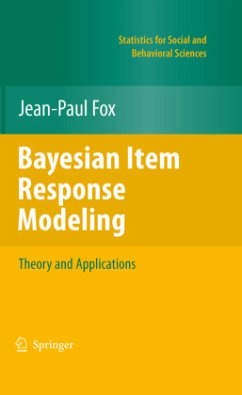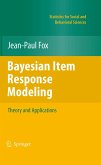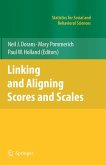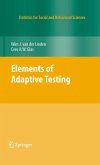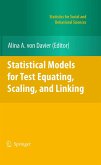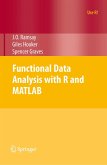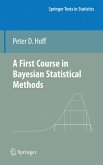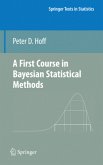The modeling of item response data is governed by item response theory, also referred to as modern test theory. The eld of inquiry of item response theory has become very large and shows the enormous progress that has been made. The mainstream literature is focused on frequentist statistical methods for - timating model parameters and evaluating model t. However, the Bayesian methodology has shown great potential, particularly for making further - provements in the statistical modeling process. The Bayesian approach has two important features that make it attractive for modeling item response data. First, it enables the possibility of incorpor- ing nondata information beyond the observed responses into the analysis. The Bayesian methodology is also very clear about how additional information can be used. Second, the Bayesian approach comes with powerful simulation-based estimation methods. These methods make it possible to handle all kinds of priors and data-generating models. One of my motives for writing this book is to give an introduction to the Bayesian methodology for modeling and analyzing item response data. A Bayesian counterpart is presented to the many popular item response theory books (e.g., Baker and Kim 2004; De Boeck and Wilson, 2004; Hambleton and Swaminathan, 1985; van der Linden and Hambleton, 1997) that are mainly or completely focused on frequentist methods. The usefulness of the Bayesian methodology is illustrated by discussing and applying a range of Bayesian item response models.
From the reviews:
"Item response theory is a general paradigm for the design and analysis of questionnaires measuring abilities and attitudes of individuals. ... the book is written in a concise style and the technical level of the book is relatively high. ... I believe this book makes an important contribution in summarizing much of the important literature in Bayesian IRT and I think it will lead to future books focusing on the use and interpretation of these models from a practitioner's perspective." (Jim Albert, Journal of the American Statistical Association, Vol. 106 (495), September, 2011)
"This book covers the parameter estimation of standard and extended IRT models using the Bayesian simulation based MCMC method. There are many Bayesian data analysis books, but this is the first book purely devoted to the Bayesian estimation of IRT models. ... Overall, it is a good book for advanced learners to grasp the theoretical and technical detail of Bayesian MCMCestimation ofextended IRT models adapted to a specific measurement setting." (Hong Jiao, Psychometrika, Vol. 76 (2), April, 2011)
"This book develops a comprehensive treatment of Bayesian item response modelling ... . The book is mostly self-contained. ... Each chapter ends with a section of carefully thought-out exercises covering both the mathematical aspects of the models and their application to the analysis of interesting real-life data. ... This book will equally cater for those users who just want to apply the models to analyze their data, and more technical users willing to get a deeper understanding of the models ... ." (Eduardo Gutiérrez-Peña, International Statistical Review, Vol. 79 (3), 2011)
"Item response theory is a general paradigm for the design and analysis of questionnaires measuring abilities and attitudes of individuals. ... the book is written in a concise style and the technical level of the book is relatively high. ... I believe this book makes an important contribution in summarizing much of the important literature in Bayesian IRT and I think it will lead to future books focusing on the use and interpretation of these models from a practitioner's perspective." (Jim Albert, Journal of the American Statistical Association, Vol. 106 (495), September, 2011)
"This book covers the parameter estimation of standard and extended IRT models using the Bayesian simulation based MCMC method. There are many Bayesian data analysis books, but this is the first book purely devoted to the Bayesian estimation of IRT models. ... Overall, it is a good book for advanced learners to grasp the theoretical and technical detail of Bayesian MCMCestimation ofextended IRT models adapted to a specific measurement setting." (Hong Jiao, Psychometrika, Vol. 76 (2), April, 2011)
"This book develops a comprehensive treatment of Bayesian item response modelling ... . The book is mostly self-contained. ... Each chapter ends with a section of carefully thought-out exercises covering both the mathematical aspects of the models and their application to the analysis of interesting real-life data. ... This book will equally cater for those users who just want to apply the models to analyze their data, and more technical users willing to get a deeper understanding of the models ... ." (Eduardo Gutiérrez-Peña, International Statistical Review, Vol. 79 (3), 2011)

